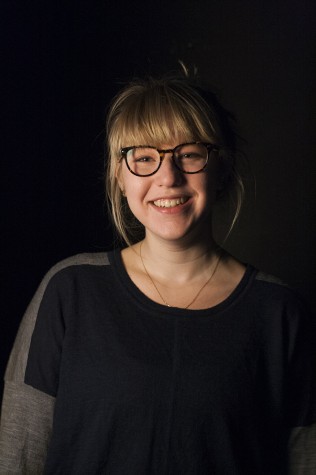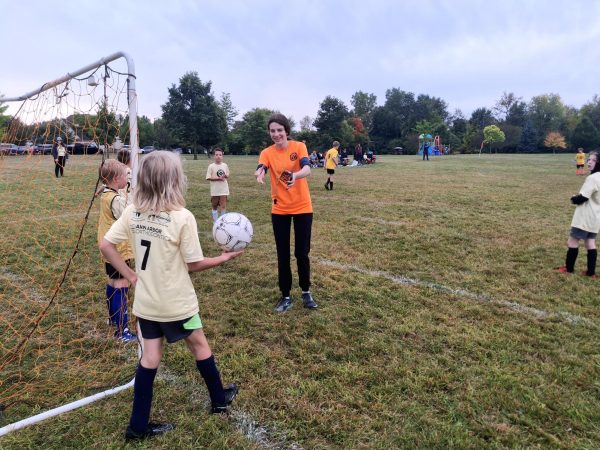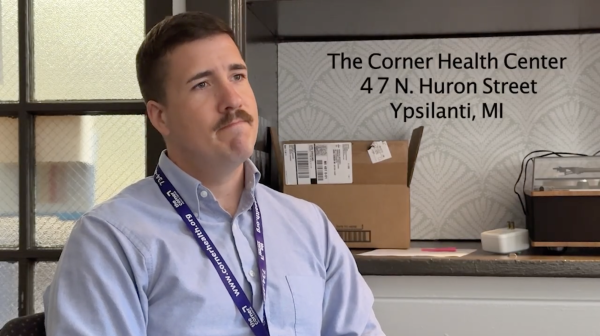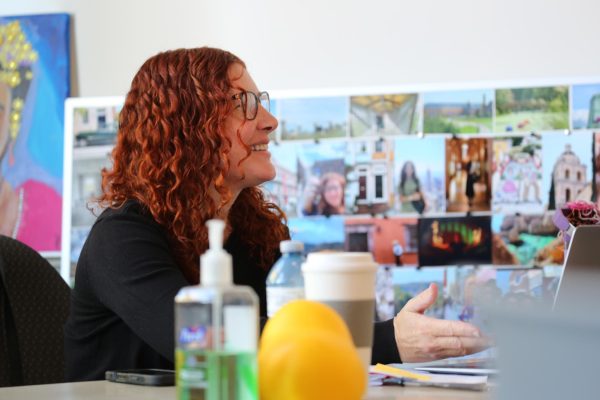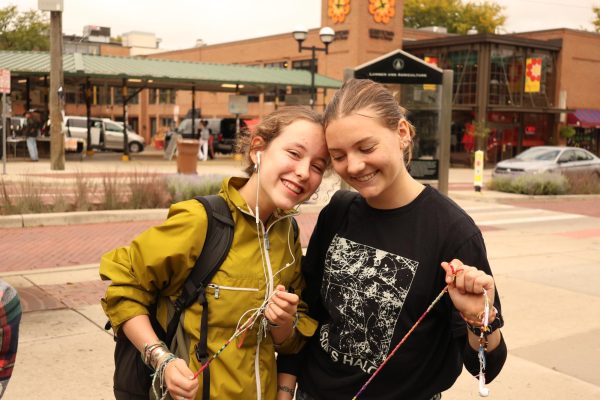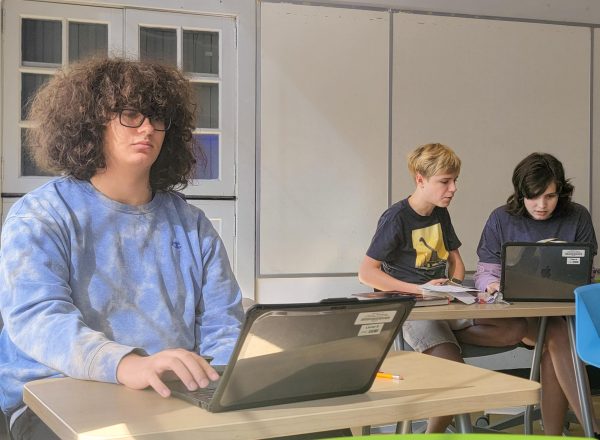Stories From the Peace Corps: Elaine Anderson
After doing a summer program in Ghana, through her medical school as a physical therapist student, Elaine Anderson became interested in programs like the Peace Corps. The Peace Corps is a 27 month long volunteer program run by the United States government that sends volunteers to countries in need of assistance. “I fell in love with developing countries and working in Africa and I knew I wanted to do something else, I wanted to go live in a developing country,” said Anderson.

In 1989, Anderson was placed in Malawi, a small country located in south east Africa. Anderson’s application process was relatively easy because, at the time, Malawi was in need of physical therapists. “It is [a difficult program to get into]. They go through a lot of screening, they want people who are going to be successful for them and for the country because with Peace Corps, it’s not the US saying these are the people we have and these are the people we’re sending, it’s the countries that say what they need. Malawi will say we need three physical therapists and these are the jobs we have. So it’s the country telling the US what they need… It seems a little rigorous, but it should be rigorous because they want to make sure it’s successful,” explained Anderson.
When Anderson arrived in Malawi, she started her in country training process. “We spent probably three months in training… We lived in the village, and it was really village life, much more than we thought. We lived with a family and lived the same lives as the women in the village… They really wanted to give you that basic basic village life, and what it was like. At the same time, we’d have our classes, we’d have our language class and our culture class with Malawians who were in country and hired by the Peace Corps. It’s pretty extensive, the cultural aspect and the language part, which is what you need when you’re going to a place that’s so different. When you walk into your job, you feel you really understand the culture and the language,” said Anderson.Anderson worked for a community based rehabilitation program based out of a world health organization program. With her Malawian counterpart, who helped her with culture and language, Anderson’s job was to go out into the village and identify children and adults with disabilities and find ways to improve their quality of life. “This means kids who weren’t sitting up by a certain age, weren’t walking by a certain age, and adults. Kids that couldn’t talk, that couldn’t hear, that couldn’t speak… Then we set up this training program with Malawian trainers and teaching them these simple things they could do with these kids. The idea was really to identify them, teach some different things and then refer to different programs,” said Anderson.
After identifying the children with disabilities, Anderson helped families learn to treat them appropriately. “These kids would be in huts and they would be almost treated like dogs, they’d have their food on the floor because they couldn’t sit up. They didn’t know what to do with them, it wasn’t that they didn’t want to, it was that they didn’t know how. So they ended up shunned. Our goal was to identify and teach them that this kid was just like any other kid, he just can’t do this one thing… A lot of it was bringing these individuals out of these situations where they weren’t treated as an equal,” said Anderson.
Anderson explained that she came back with a new mindset after her time in Malawi. “If you go to Africa, after the Peace Corps, you come back and you just laugh at everything. I think it’s just so key, because you learn that sometimes you try something and it doesn’t work, so you have to just laugh at it and move on to the next thing. I think that’s one thing I’ve taken back. You can pursue and pursue all this stuff and some things work and don’t work, and you can’t get too uptight. That’s something I’ve taken back, you just laugh at things,” said Anderson.
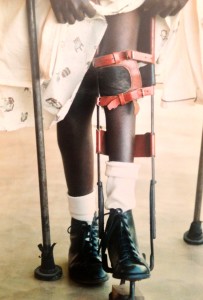
“I would say sometimes [the hardest part was] the frustration, when I didn’t laugh at things, and you wanted to get things done, but you just couldn’t, there were so many roadblocks in the way. You’d have these ideas, but it was hard to communicate, it was hard to call people, the phones didn’t work, you’d set this up, and it didn’t work and you’d have to go back to ground zero. The frustration of having the American mentality in a developing world,” said Anderson.
After her time in the Peace Corps, Anderson went on to get her masters in public health. “To really see at the ground level, what public health looks like, what really is happening, like very much the village level. And I think unless you live there and be a part of that, you can’t get that perspective,” said Anderson.
Anderson feels that she left the Peace Corps with a new mindset, “You get to have a perspective of this is the world, and the villages, and the people in the villages, who have a very simple simple life, are happier, sometimes, than people who live with all of these luxuries and all of these nice things. It’s not about what you have and where you live, it’s about who you are. That’s probably the biggest influence I’ve had in my life, is doing the Peace Corps and having that perspective. And for everything, you think about a situation and you go back to this is how people lived in Malawi, in my village, and you know, they were really happy people. They had a lot they had to deal with, a lot of people died, a lot of hard life situations, but they were basically really happy people.” Although doing Peace Corps does not always work out for everyone, it is one of those opportunities that follows people, such as Elaine Anderson, throughout the rest of their lives.
If you want to read more about the Peace Corps, click here.
